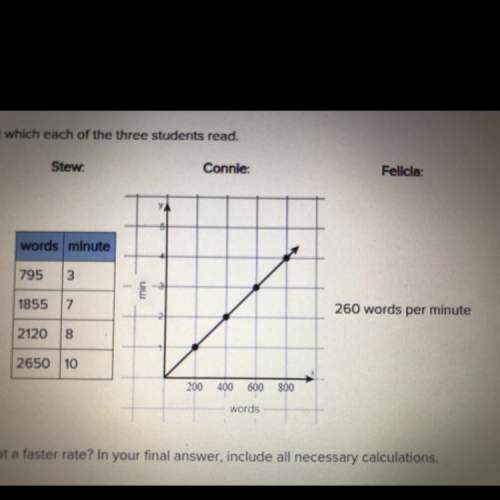
Mathematics, 26.02.2020 18:00, erniewernie
(Degree Rule) LetDbe an integral domain andf(x), g(x)∈D[x]. Prove that deg(f(x)·g(x)) = degf(x) + degg(x). Show, by example, that for commutative ringRit is possible that degf(x)g(x)

Answers: 1
Other questions on the subject: Mathematics

Mathematics, 21.06.2019 19:00, hanahspeers
If f(x)= sqrt4x+9+2, which inequality can be used to find the domain of f(x)?
Answers: 2


Mathematics, 21.06.2019 20:50, kernlearn2312
In the diagram, gef and hef are congruent. what is the value of x
Answers: 1

Mathematics, 21.06.2019 21:00, sjackson0625p8w1a0
Me! i will mark you brainliest if you are right and show your i don't get polynomials and all the other stuff. multiply and simplify.2x(^2)y(^3)z(^2) · 4xy(^4)x(^2)show your
Answers: 2
Do you know the correct answer?
(Degree Rule) LetDbe an integral domain andf(x), g(x)∈D[x]. Prove that deg(f(x)·g(x)) = degf(x) + de...
Questions in other subjects:

Physics, 27.09.2019 06:30


English, 27.09.2019 06:30




English, 27.09.2019 06:30

Mathematics, 27.09.2019 06:30

Biology, 27.09.2019 06:30

Biology, 27.09.2019 06:30


 with deg(g(x)) = q
with deg(g(x)) = q with its deg(f(x)) =n
with its deg(f(x)) =n  and
and  are not non-zero coefficients
are not non-zero coefficients and
and 




 ∈
∈ ![R_2[x]](/tpl/images/0525/0630/2ba15.png) and g(x) =
and g(x) =  0
0 ).(
).(

 )
)![(Degree Rule) LetDbe an integral domain andf(x), g(x)∈D[x]. Prove that deg(f(x)·g(x)) = degf(x) + de](/tpl/images/0525/0630/74310.jpg)





